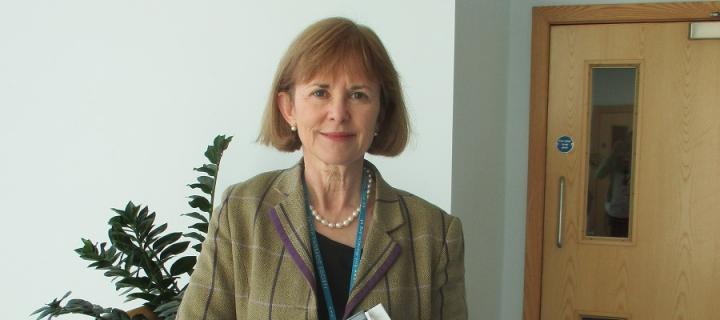From zebrafish to big data: step into medical research
An upcoming event will allow alumni to take a tour of the University’s world-renowned Medical School and see ground-breaking research in action.

Taking place on the afternoon of 10 June at the Queen’s Medical Research Institute (QMRI), alumni will be shown how teaching and research at the University aim to provide the best possible care for patients and their families.
Professor Moira Whyte, Head of the Medical School, and colleagues will lead tours around the Little France Campus.
“I really want to give our alumni a comprehensive insight into the work of the School,” she says. “We will do this with an introductory overview, then highlight four spotlight projects to demonstrate aspects of our activity, followed by a tour around our various facilities to see research in action.”
See inside the body
One area on the day’s agenda is the School’s world-class human imaging facilities, which help clinicians and researchers to see inside the body without the need for surgery.
“These new techniques help us to ‘see’ how diseases develop,” says Professor Whyte. “They show us how treatments are administered and how the body reacts over time. They are being used to develop treatments for a wide variety of disorders in a number of body systems, including the nervous, cardiovascular and reproductive systems. I’m certain alumni will find these facilities fascinating.”
Zebrafish
Another area that will intrigue visiting alumni will be the UK Zebra Fish Screening Facility. Zebrafish are remarkable animals, with properties of interest to medical research. Transparent by nature, they reproduce rapidly, allowing scientists to use them as miniature genetic models in order to study how a human disease would manifest itself, almost in ‘fast forward’ motion.
“Unlike humans, zebrafish can actually repair some body systems,” says Professor Whyte. “So, investigating how the fish naturally resolve disorders such as heart or liver problems can hold clues as to how to switch on these repair mechanisms in humans.”

Cutting-edge
A further stop on the tour will be the Anne Rowling Regenerative Neurology Clinic, a patient-centred, cutting-edge research centre focussed on neurodegenerative diseases. Established following a donation from author and Edinburgh alumna JK Rowling, the clinic not only treats patients, but also allows researchers to work with them in order to understand what is causing neurological disorders and what can be done to repair damaged nerves.
The concept of Big Data will also come to the fore, as Professor Whyte explains:
“Big Data refers to extremely large data sets that may be analysed computationally to reveal patterns, trends and associations. We will explain how these results could help to predict diseases before they even happen, and allow us to better implement preventative therapies for people. It’s so innovative and exciting, and it’s all happening here at Edinburgh Medical School.”
The General Council
The event is part of the General Council Half-Yearly Meeting, which aims to give alumni an overview of its work and current developments at the University.
“We are delighted that Professor Whyte has agreed to give our alumni an oversight of the vital work being carried at the University’s Medical School, and the tour promises to be fascinating and informative. I look forward to welcoming our guests for what promises to be a highlight in the University calendar.”
Book your place
Tickets for the event, which also includes a light buffet lunch, are free and can be booked via the following link:

